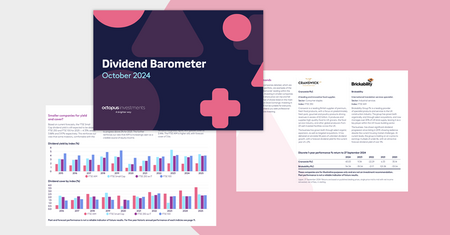For accountants, solicitors, and lawyers, professional connections with financial advisers are hugely important.
Yes, there are direct commercial benefits to reciprocal referral relationships. Many practices see a significant proportion of new business coming through referrals from financial advisers.
But building referral relationships is ultimately about getting better outcomes for clients.
In any profession, there will always be areas you aren’t able to provide advice or guidance on. To provide the best service to clients, having the right professional connections means clients benefit from a holistic approach.
We know from speaking to various professionals, that it’s common to have a bank of financial advisers to refer clients to, based on whether they are a good fit for the client’s needs.
Part of your consideration when referring clients should be whether an adviser is experienced in recommending specialist tax-efficient investments, because these can lead to good outcomes for clients.
Estate planning and Business Relief
Rising asset values and freezes to the nil rate bands mean more clients are being pulled into the inheritance tax net. And those already affected could face a higher liability.
While traditional options like gifting are used in estate planning, some clients have concerns about surviving the seven-years required for a gift to be effective. A lot of clients are also concerned about retaining access to their wealth in later life.
It’s likely these concerns became more important to clients having gone through the uncertainty of the pandemic.
Business Relief (BR)-qualifying investments can help clients plan for inheritance tax in a shorter time frame than other estate planning options, while also keeping wealth in the client’s own name.
If a client holds a BR-qualifying investment for two years, and still holds the shares on death, it is zero-rated for inheritance tax. If circumstances change and the client wants to access their investment, they can request a withdrawal. Please note that liquidity can’t be guaranteed though.
Tax planning and venture capital
Many clients can exhaust traditional tax-efficient investing avenues. So it pays to look beyond pensions and Individual Saving Accounts (ISAs).
Where a client makes full use of their annual ISA allowance and makes significant pension contributions that have compounded over the years, options like a Venture Capital Trust (VCT) might be worth exploring with a financial adviser.
A VCT is a pooled investment where a client invests in a large, listed company, which in turn invests in a portfolio of early-stage companies.
An investor can claim up to 30% income tax relief on the amount invested in a VCT, on up to £200,000 invested each tax year. A VCT typically targets a 5% tax-free dividend. Shares must be held for at least five years to benefit from tax relief (if shares are sold before then, any upfront income tax relief that has been claimed must be repaid).
For these reasons, VCTs have become an attractive complementary way to invest for retirement for clients who are also comfortable with the high-risk nature of indirectly investing in smaller companies.
Take landlords for example. If landlords want to use rental income to contribute to a pension for retirement, there’s a catch. Claiming tax relief on pension contributions requires you to contribute relevant earnings, typically from employment which a landlord might not have (as rental income does not count). At the same time, landlords can no longer deduct all their mortgage costs from rental income.
Understandably, some landlords have turned to VCTs to invest rental income tax-efficiently. A VCT investment can provide them an alternative source of income in retirement, also helping to reduce their income tax bill, including tax on their rental income.
Similarly, you might want to think about business owners who want to extract a dividend from their business tax-efficiently. It’s common for businesses to build up a surplus of cash which would have tax implications when taken out. A VCT investment can help a business owner to reduce income tax charges that may arise on extraction, but also provide an investment that targets a return.
Investing in an Enterprise Investment Scheme (EIS) portfolio managed by a specialist fund manager is also an option for experienced investors. EIS investments attract 30% upfront income tax relief provided shares are held for at least three years. The companies target significant growth so EIS also come with a suite of further attractive tax reliefs to compensate for some of the risk involved. These include tax-free growth, loss relief, relief from inheritance tax, and capital gains tax deferral. This can be very useful for a variety of client planning scenarios.
These investments are high risk and aren’t suitable for everybody
Financial advisers must make sure any recommendation of these products is relevant and suitable for the client in question.
The value of an investment, and any income from it, could fall as well as rise. Investors may not get back the full amount they invest.
Tax treatment depends on individual circumstances and may change in the future. Tax relief depends on portfolio companies and VCTs maintaining their qualifying status.
VCT shares and the shares of unquoted companies could fall or rise in value more than shares listed on the main market of the London Stock Exchange. They may also be harder to sell.
Next steps
To find out more about how BR, VCT and EIS investments and how they work in practice, you can visit our client scenarios page. Here you’ll find a range of client planning scenarios and also a series of interviews with financial advisers on how they use tax-efficient investments to deliver good client outcomes.








